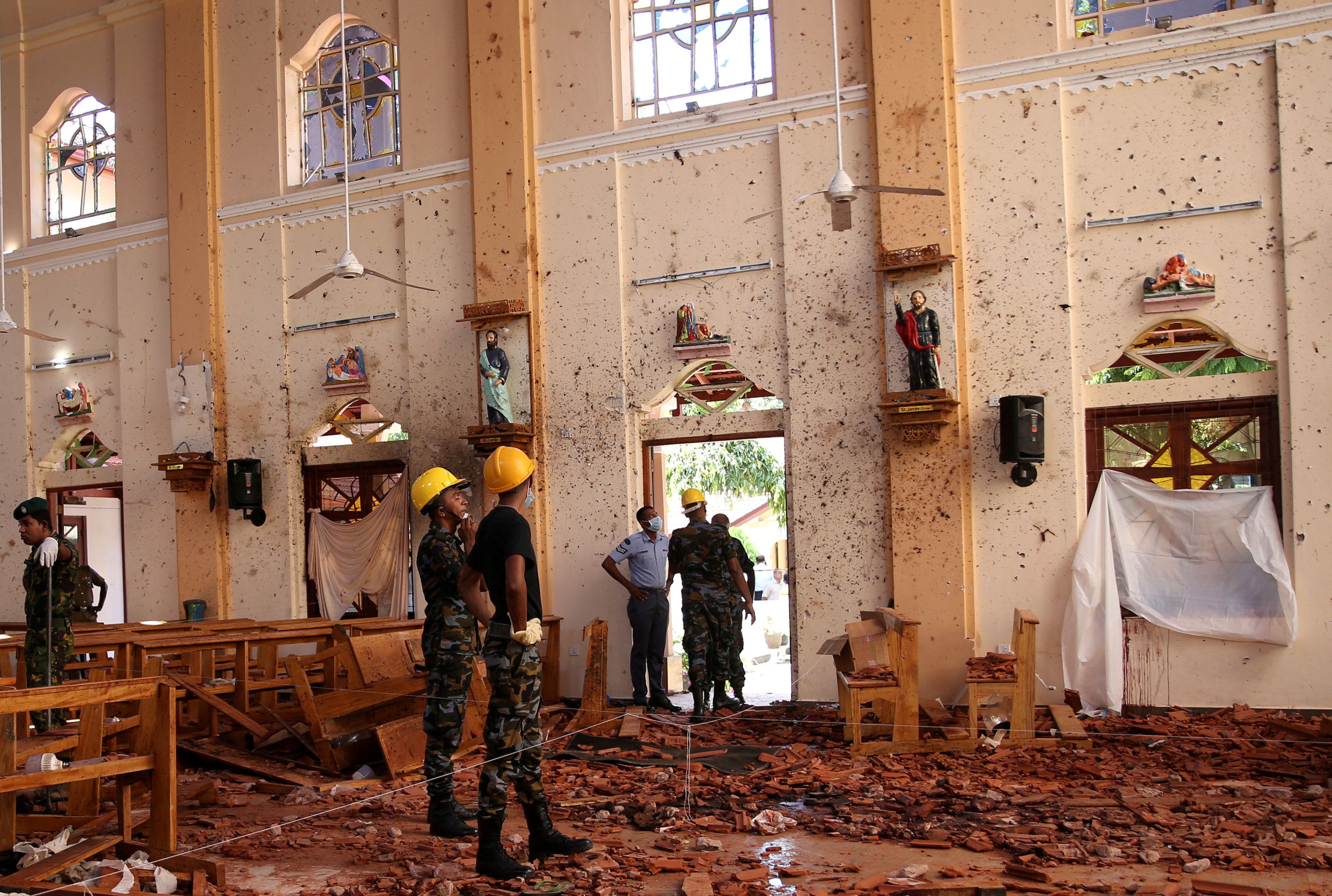On Sunday, suicide bombers struck churches and hotels across Sri Lanka. The carefully coordinated attack on eight targets in three cities killed 290 people as of Monday. It's the deadliest terror attack in South Asia in decades, and the death toll could continue to climb in coming days.
Here's what we know so far:
- This was a well-organized attacked aimed specifically at Christians and foreigners: The bombings took place in three different cities and were timed to coincide with Easter, in places where both church-goers and tourists were bound to gather. Even during the country's multi-decade civil war, which left tens of thousands dead before it ended in 2009, no one intentionally targeted tourists or the country's 1.5 million-strong Christian population on this scale.
- The government has blamed domestic Muslim extremists but thinks they had overseas help: Officials blamed a little-known group, National Thowheed Jama'ath (NTJ), whose previous activities were limited to vandalizing Buddhist temples (Buddhists make up about 70 percent of Sri Lanka's population of 22 million.) NTJ has yet to claim responsibility for Sunday's carnage. Given the coordination involved, speculation is swirling that the perpetrators received assistance from a foreign terror group.
- This was an intelligence failure: The country's security service received a warning at least 10 days before the bombings, but the information was either ignored or didn't make it to the right people. A bad relationship between Sri Lanka's president and prime minister may be partly to blame, according to the country's health minister.
- The government is worried that ethnic and religious violence could spread: It quickly blacked out social media sites including Facebook and WhatsApp to halt the spread of incendiary news and rumors. The government has also imposed a curfew to keep people off the streets at night.
There are still more questions than answers. The government's failure to stop the bombings is likely to dominate the news in coming days, but the attacks also highlight some broader political trends:
Terrorism after the Islamic State: ISIS has claimed responsibility for the bombings. Investigators believe the attackers were acting in response to the Christchurch mosque shooting in New Zealand in which 50 people, including many Muslims, were killed earlier this year. We've written before about the worry that thousands of hardened ISIS fighters fleeing a collapsing Islamic State in Iraq and Syria might plot attacks elsewhere and promote their ideology via cyberspace. This attack confirms those fears are justified.
Identity politics in Asia: Religious fault-lines are opening across South and Southeast Asia. The ethnic cleansing committed by Myanmar's Buddhist generals against the country's Muslim Rohingya minority, Indian Prime Minister Narendra Modi's resurgent Hindu nationalism, and governments in Bangladesh and Indonesia partnering with conservative Muslim groups to maintain their grip on power are all part of a regional lurch away from secularism.
Want more?3 things to know about Sri Lanka
* This article has been updated to reflect ISIS' claim of responsibility in connection to the attacks.
